Riletamotide (CAS No. 524061-04-9) | High-Purity Immunological Agent
原价为:$32.00。$26.00当前价格为:$26.00。
Riletamotide (CAS No. 524061-04-9) is an immunological agent for active immunization, widely studied in cancer immunology and vaccine development research. Supplied in GMP-compliant, high-purity form for laboratory use only.
描述
Product Description
Riletamotide is a synthetic immunological peptide classified as an agent for active immunization. As a research tool, it is used to model how short peptide antigens can be harnessed to stimulate specific immune responses, particularly in the fields of cancer immunology, vaccine development, and adaptive immune system research.
The rationale behind Riletamotide is rooted in the principles of epitope-based immunization. Unlike whole-protein vaccines, peptide-based vaccines offer high specificity, reproducibility, and reduced toxicity. Riletamotide exemplifies this design by representing a carefully selected immunogenic sequence capable of triggering T cell-mediated immune responses.
Scientific Relevance
Immunological peptides such as Riletamotide have a growing role in research because they address limitations of traditional vaccine platforms. In preclinical models, these synthetic peptides have demonstrated:
-
Efficient antigen presentation via MHC molecules
-
Activation of cytotoxic T lymphocytes (CTLs)
-
Potential to generate immune memory
-
Flexibility in formulation with adjuvants or delivery carriers
Riletamotide is especially suited for research that focuses on tumor immunology, translational oncology, and the study of immunological memory formation.
Broader Research Applications
In addition to oncology, peptide immunogens like Riletamotide are being explored for:
-
Infectious disease vaccine development
-
Autoimmune research (tolerance induction models)
-
Personalized immunotherapy platforms
-
Combination therapy studies (checkpoint inhibitors, adjuvants, cytokines)
As such, Riletamotide is not only a research reagent but also a key proof-of-concept tool for exploring next-generation immunization strategies.
Product Specifications
| Parameter | Details |
|---|---|
| Product Name | Riletamotide |
| CAS Number | 524061-04-9 |
| Synonyms | Riletamotide; GLXC Research Peptide (code assigned) |
| Molecular Formula | Sequence-derived, available upon request |
| Molecular Weight | Sequence-derived, available upon request |
| Appearance | White to off-white lyophilized powder |
| Purity | ≥ 98% (HPLC confirmed) |
| Solubility | Soluble in water, PBS, and DMSO |
| Stability | Stable in lyophilized form for ≥24 months at –20°C |
| Storage Conditions | Store at –20°C; protect from light and moisture; avoid repeated freeze-thaw |
| GMP Compliance | Manufactured in GMP-certified facilities |
| Applications | Cancer immunology, active immunization research, peptide vaccine studies |
| Availability | Bulk and research-scale formats available |
Notes on Specifications
-
Purity: Analytical HPLC and mass spectrometry ensure >98% consistency.
-
Formulation: Lyophilized form guarantees stability and ease of reconstitution.
-
Research Scope: Compatible with in vitro and in vivo immunization models.
Mechanism of Action & Research Applications
Mechanism of Action
Riletamotide functions as a synthetic epitope-based immunogen. Upon administration in a research model, it is taken up by antigen-presenting cells (APCs) such as dendritic cells. The peptide is then processed and displayed on MHC class I and/or class II molecules, depending on sequence design.
This leads to:
-
Activation of T lymphocytes – CTLs recognize the peptide-MHC complex and begin targeted responses.
-
Immune cascade initiation – cytokine release, helper T cell activation, and cross-talk with B cells.
-
Memory formation – generation of long-lived memory T cells for durable immune surveillance.
Research Applications
-
Cancer Immunology – Used as a model to evaluate tumor-associated antigen targeting.
-
Vaccine Research – Helps refine peptide vaccine formulations with optimal immunogenicity.
-
T Cell Immunobiology – Allows researchers to study the fine-tuned mechanisms of CTL activation.
-
Adjuvant Studies – Tested in combination with CpG, Poly-ICLC, or lipid-based carriers.
-
Combination Immunotherapy – Explored alongside checkpoint blockade therapies such as anti-PD-1.
-
Immunological Memory Research – Aids in understanding how immune memory can be engineered against cancer.
-
Personalized Peptide Vaccines – Provides proof-of-concept for individualized immunogen design.
Translational Insights
Because telomerase, WT1, and other tumor antigens are widely studied with similar peptide strategies, Riletamotide is viewed as part of the broader scientific movement toward peptide-based immunization platforms.
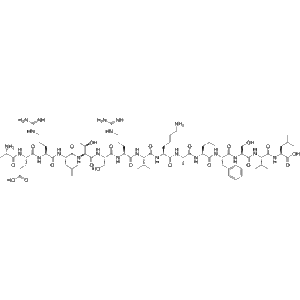
Side Effects (For Research Context Only)
Riletamotide is not approved for human or veterinary use. However, data from related peptide immunization models highlight potential side effects that may be relevant for research:
-
Injection Site Reactions – Local swelling, redness, or discomfort due to immune activation.
-
Cytokine-Mediated Effects – Transient fever, fatigue, or malaise in animal studies.
-
T Cell Overactivation – Risk of immune exhaustion if dosing is not optimized.
-
Autoimmune Concerns – Theoretical risk of off-target reactivity with normal cells.
-
Species-Specific Variability – HLA/MHC restrictions can influence outcomes.
-
Combination Therapy Risks – Stronger side effects when combined with adjuvants or checkpoint modulators.
These effects are only reported in experimental research contexts, not clinical settings.
Disclaimer
For laboratory research use only. Not for human or veterinary use.
Keywords
-
Riletamotide
-
Synthetic immunological peptide
-
Active immunization peptide
-
Cancer immunotherapy research peptide
-
GMP-grade peptide reagent
-
Peptide-based vaccine research
-
Immunological epitope peptide
-
Laboratory-use peptide
-
Antitumor peptide research
其他信息
| 重量 | 0.7 公斤 |
|---|---|
| 尺寸 | 52 × 46 × 52 厘米 |
A synthetic peptide designed as an immunological agent for active immunization research.
CAS No. 524061-04-9.
Cancer immunology and peptide vaccine research.
Yes, it is produced in GMP-certified facilities.
No, it is strictly for laboratory research use.
At –20°C, protected from light and moisture.
≥98% confirmed by HPLC.
Mainly T cell-mediated responses via antigen presentation.
Yes, it is often studied in combination with immune adjuvants.
Because it models how synthetic peptides can stimulate targeted immune responses against tumor-associated antigens.

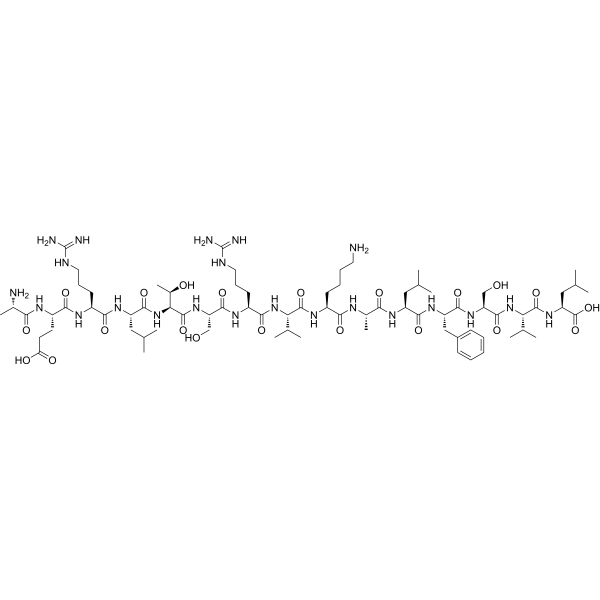

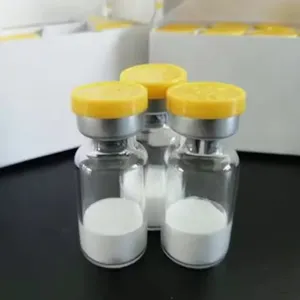

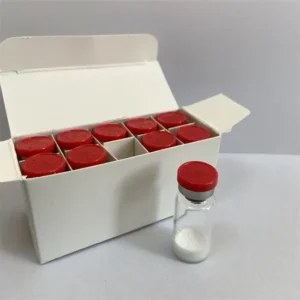


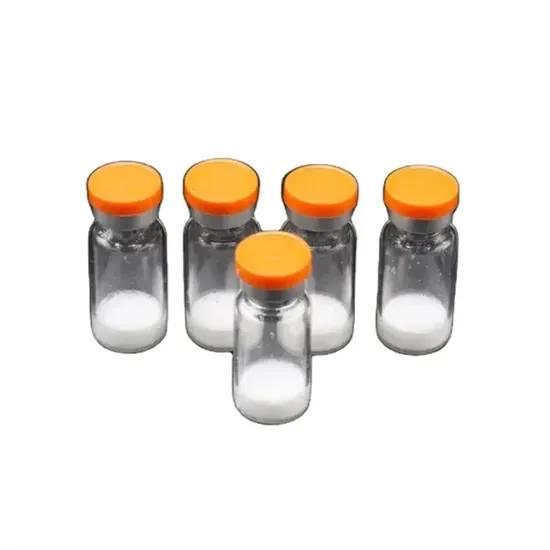
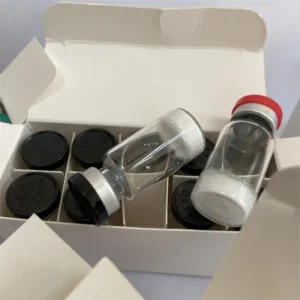
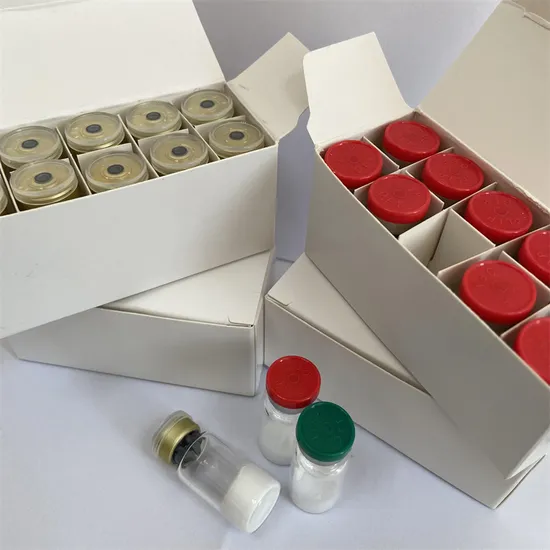
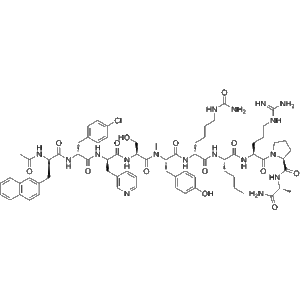
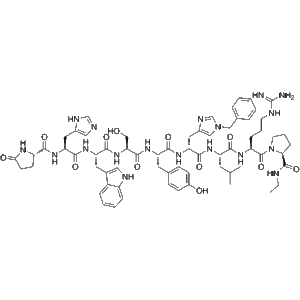
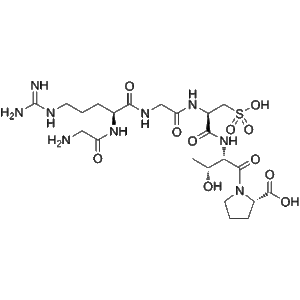
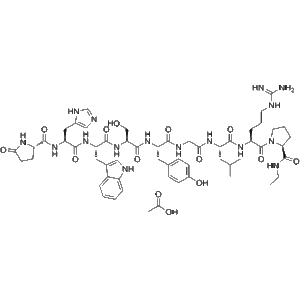
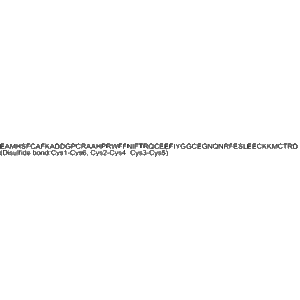
评价
目前还没有评价